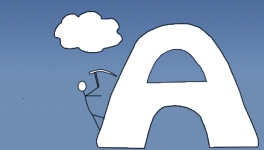« Rabbits on the Cover… | Main | If I Lived in the Northeast »
Economics of Road Trips
By Chris | November 5, 2007
I haven’t posted for the last few days because I was out-of-state competing in an ultimate frisbee tournament. I’m a member of my college’s club team. As a club team, we get very little financial support from the school and have to pay for traveling expenses out of pocket. After spending a very cold first night camping, we crammed 12 players into a Best Western hotel room the following night. One of the guys paid for the room out of pocket and everyone promised to chip in 9 bucks to cover its cost. It is Monday and so far only 2 of the 11 people have reimbursed their teammate.
I can’t say that I am surprised. The same thing happens to me when I drive on road trips. And, while I make a concerted effort to reimburse others promptly, I sometimes forget. It is human nature to overlook the costs borne by others on your behalf. The increasing use of credit cards versus cash has exacerbated the problem. It is easy to postpone paying back the driver “until I have cash.” Even when people remember to chip in for gasoline they aren’t contributing to depreciation or maintenance. AAA estimated that the average cost of driving a mile is $0.52 (assuming $2.25 gas prices). If the average vehicle gets 20 miles per gallon, gasoline comprises $0.11 per mile or less than 25% of the cost of driving a mile. If drivers aren’t adequately compensated for the costs of driving, the result is an inefficiently low number of road trips.
I own a Ford Explorer and I love it. It has lots of leg and head room, is green, and takes me to my favorite fishing spots. I bought it well aware that it would get horrible gas mileage. What I didn’t realize was that owning a four-door SUV would make me the default driver at college for short trips. A spacious SUV is more convenient and comfortable than a 2-door Civic for groups traveling short distances. My friends with fuel-efficient sedans ended up driving on longer trips. And, outside of the ten-minute drive to go mountain biking, people with pickup trucks rarely drove. The social norm of contributing only for gas, if at all, has some interesting consequences. A self-interested college student has an incentive to purchase a cheaper vehicle with worse gas mileage and fewer doors than he or she would otherwise purchase. Of course, you can always buy the car that you really want and refuse to drive, but that would likely offend your peers. I knew one guy who kept his bicycle in the back of his car so he never had room for more than one extra seat.
Is that the full story? Do I offer drivers enough money to compensate them for depreciation, insurance, and maintenance? No. There are other considerations. For example, a brand new BMW costs a lot in deprecation per mile. However, while I might enjoy the leather seats and a smoother ride, the owner of the car is getting all the status benefits from owning the nice car. I don’t see the need to contribue to insurance because it is rarely correlated to miles and will be borne regardless of the trip. It is not a true marginal cost. Lastly, the driver gets the benefits of being in control. The music, temperature, choice of stops, and ultimately the occupants’ lives are in his hands.
I’ve been reading how social and emotional conventions create necessary incentives outside of traditional markets. However, in my experience, social norms fail to compel college students to contribute to the cost of road trips. Too many people simply “forget”to pay and it can be incredibly awkward to have to ask an acquaintance for 20 bucks for last week’s trip to Seattle. With close friends it is easy to take turns driving and things tend to average out. With acquaintances it’s more difficult. You can ask for gas money upfront, but that can come across as gauche and often you won’t know the cost of the trip until it is over. One suggestion for long trips is to have riders alternate paying at the pump and reimburse them with your share at the end of the trip. Or, you could buy a 1986 Ford Ranger and let someone else drive. Just don’t expect to listen to your favorite music.
Note: Since we were considering road trips, I assumed that the driver wouldn’t be driving from A to B anyway (in which case the marginal cost of an additional passenger is close to zero). Otherwise, the discussion would have involved a whole different dimension.
Topics: College, Economics | 1 Comment »



November 12th, 2007 at 12:35 am
When I saw your car at first sight, my feeling was…
It is so cool!! I like it.
It shocked me one day when I realized that I am more closed with those friends who have a car here. Am I unconsciously taking the ownership of a car as something important when I make friends? Or just because when I could easiely ask for a ride from them, I have more chances to know them and appreciate them more?
I wonder how much I was supposed to compensate for the trip from Coldstone to my apartment that day. 🙂